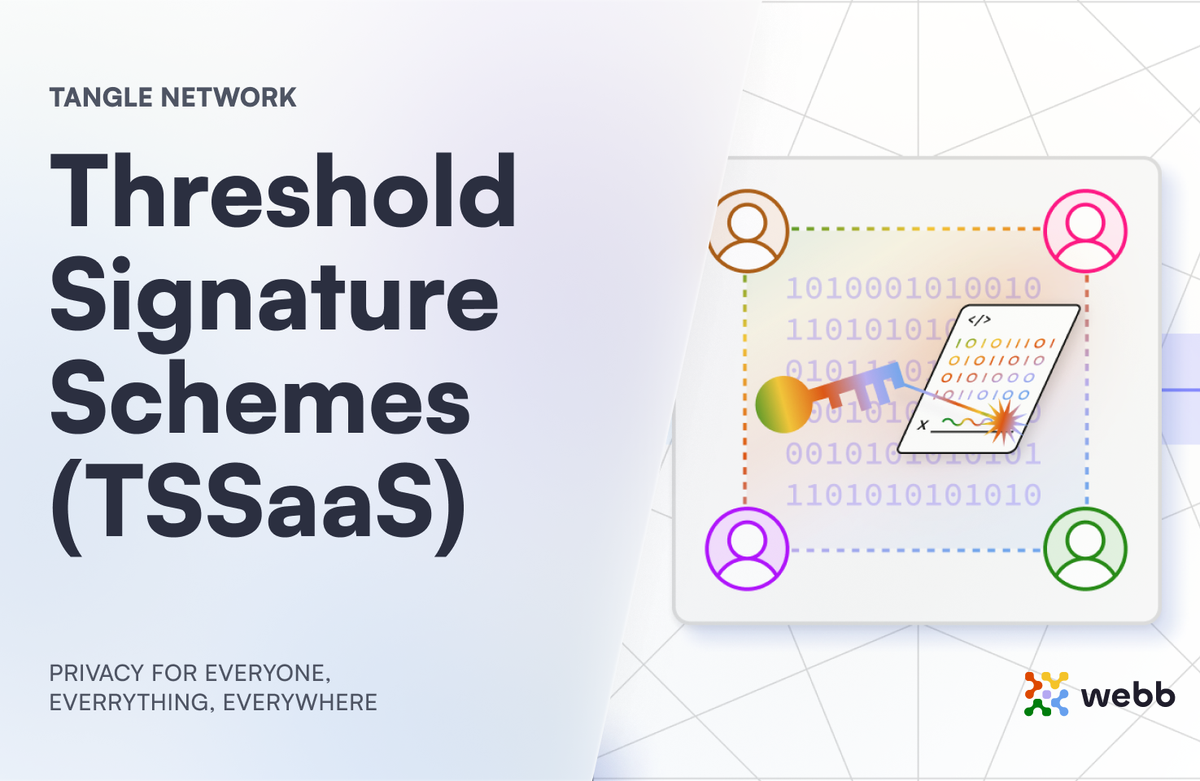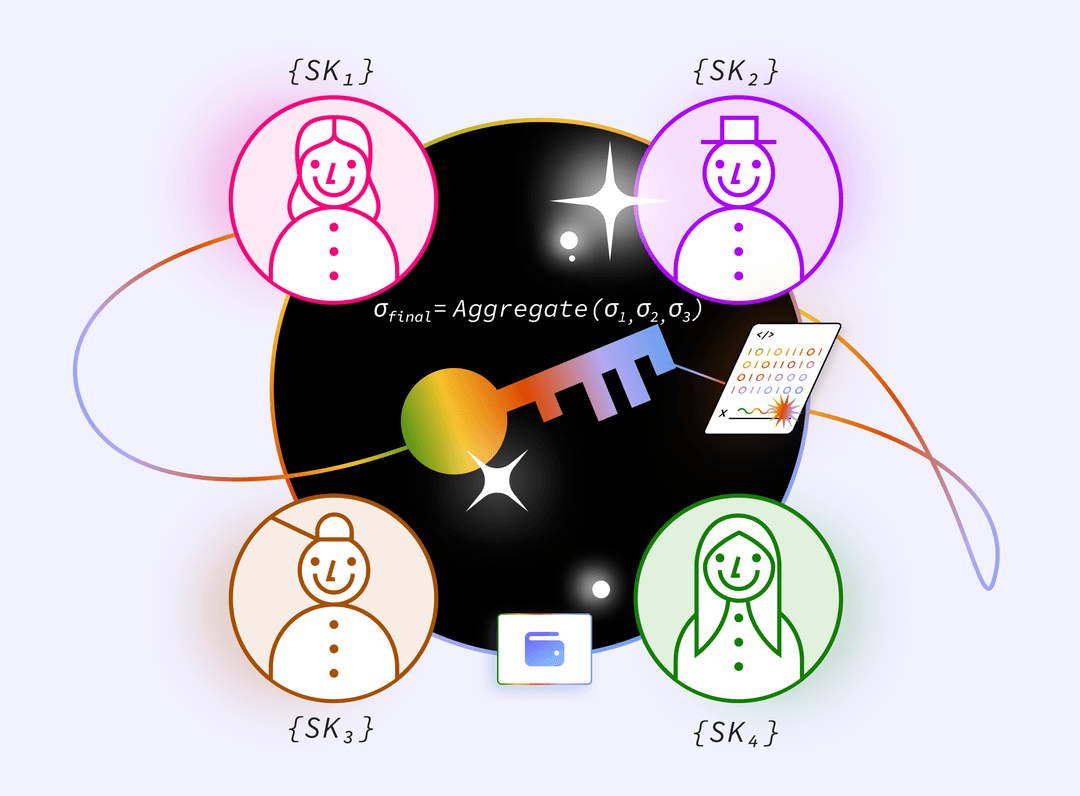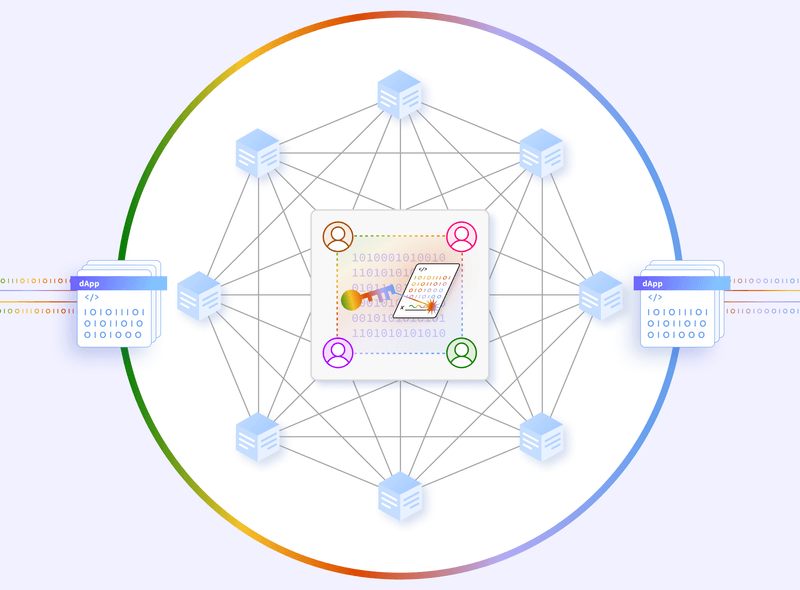Kickstart MPC Innovation with Tangle Network: The Power of Threshold Signature Schemes

Introduction
With the acceleration of blockchain technology, ensuring advanced security and privacy is more critical than ever. The Tangle Network is at the forefront, providing cutting-edge multi-party computation (MPC) solutions via a collaboratively incentivized ecosystem of validators.
This blog post unveils Tangle Network's Threshold Signature Schemes (TSS) solution and their transformative potential for builders and developers in custody solutions, oracles, and cross-chain bridges.
Threshold Signature Schemes: A Primer
Threshold Signature Schemes (TSS) are advanced cryptographic protocols that enable a group of participants to collectively generate a single digital signature. In a TSS, the signing key is distributed among multiple parties, and only a subset of these parties—a threshold—needs to collaborate to produce a valid signature.

Signatures are pervasive in the design of blockchain applications. Tangle provides signatures as a service using [threshold cryptography](https://en.wikipedia.org/wiki/Threshold_cryptosystem#:~:text=A threshold cryptosystem%2C the basis,cluster of fault-tolerant computers.) as a first-class citizen of the protocol.
Tangle supports a variety of signature schemes, such as Schnorr (FROST), BLS, and ECDSA. This flexibility allows developers to meet specific security, efficiency, and application requirements. It opens up a world of possibilities for developers to innovate and create secure, efficient, and interoperable blockchain solutions without the burden of managing complex cryptographic operations.
Use Case #1: Custody Solutions
In the rapidly evolving world of digital assets, one of the most important components that needs to be carefully considered is the management and storage of these assets, especially when dealing with significant volumes. However, a majority of the wallet services that exist today operate on a centralized model. This means that they require users to place their complete trust in these custodians to manage and protect their holdings securely.
By integrating Tangle's TSS service into a wallet service, a threshold (t out of n) of signatures are required to validate transactions, which eliminates a single point of failure that could jeopardize the security of digital assets. This distributed trust model not only enhances security but also provides flexible key management and recovery.
Benefits

- Enhanced Asset Security: TSS enhances security by requiring multiple custodians to jointly authorize transactions, making it difficult for unauthorized parties to gain access to the assets.
- Anonymity of Participants: The identity of participants in any given signing operation can remain anonymous, as the final signature does not reveal which key shares were involved in its creation.
- Streamlined Key Management: TSS simplifies key management and recovery, as the compromise or loss of a single key share does not equate to asset loss. Secure regeneration and redistribution of key shares can occur without exposing the entire private key.
Use Case #2: Oracles
Oracles serve as bridges between blockchains and the real world, providing external data (like voting results, price feeds, etc.) that smart contracts can act upon. Because many decentralized applications, especially in finance (DeFi), rely on accurate and timely information from oracles to function correctly, the integrity of these data feeds is paramount.
Tangle's TSS enables the creation of of more decentralized and secure approach to handling oracle data. By requiring a consensus among multiple participants before an oracle's data is accepted, this enables the mitigation of risks associated with data manipulation and single points of failure. This approach can significantly enhance the security and reliability of oracles, making it more challenging for attackers to influence the data feeds maliciously (example: flash loans & internal fraud).
Benefits

- Improved Data Accuracy: TSS can be used to aggregate data from multiple sources, requiring a consensus among the signers before the data is accepted. This can help filter out inaccuracies and ensure that only verified data is used by smart contracts.
- Resilience to Collusion: Since TSS requires a threshold number of signatures for a transaction to be valid, it is resistant to collusion among a minority of participants. This ensures that the oracle data remains reliable even if some participants are malicious or compromised.
- Privacy and Trustlessness: The use of threshold signatures can enhance privacy and trustlessness by ensuring that the source of data remains anonymous and secure, as attackers cannot target a single node to compromise the oracle.
Use Case #3: Cross-Chain Bridges
Cross-chain bridges are mechanisms that allow the transfer of assets, data, and smart contract calls between different blockchain networks. They are essential tools for achieving interoperability in the blockchain ecosystem, enabling users and applications to interact across chains that would otherwise operate in isolation.
By integrating Tangle's TSS, developers can boost the security and reliability of cross-chain bridges. This is achieved by decentralizing the signing authority, which increases resistance to attacks and collusion. This is vital for maintaining the integrity and reliability of cross-chain operations, essential for a connected and interoperable blockchain ecosystem.
Benefits

- Enhanced Security: By requiring multiple signers to generate a valid signature, TSS makes it more difficult for attackers to manipulate or forge transactions. This distributed approach significantly reduces the risk of a single point of failure, collusion, or malicious behavior.
- Governance and Upgradability: TSS enables the bridge protocols to execute updates to contracts with the involvement of multiple parties, thereby decentralizing trust and mitigating risks associated with centralized approaches. (see example)
- Flexibility and Adaptability: Tangle’s TSS can support various cryptographic algorithms, including Schnorr (FROST), BLS, and ECDSA. This flexibility allows bridges to use the most appropriate signature scheme for their specific security requirements and to adapt to evolving cryptographic standards.
A Unified Ecosystem: Tangle’s Restaking Infrastructure and MPC Services
Tangle Network introduces a restaking mechanism that allows validators to restake a portion of their locked stake to participate in additional computational tasks, including those related to MPC services. This restaking process is integral to Tangle's MPC-as-a-service (MPCaaS) infrastructure, enabling validators to earn rewards by providing computational services for advanced cryptographic applications.
The synergy between TSS and the restaking infrastructure lies in the way validators engage with the network to provide TSS services:
- Validator Participation: Validators restake a portion of their stake to participate in MPC protocols, including TSS. This restaking not only secures their commitment to the network but also aligns their incentives with the successful execution of MPC tasks
- Decentralized Services: Through restaking, validators become part of a decentralized network offering various services, such as TSS. This decentralization enhances the security and reliability of the services provided, as no single party controls the entire process.
- Rewards Mechanism: Validators earn rewards for their participation in MPC tasks, including those involving TSS. The restaking mechanism ensures that rewards are distributed based on the validators' contributions to the network's security and computational capabilities.
In summary, Tangle's TSS works hand-in-hand with its restaking infrastructure to provide a secure, decentralized platform for MPC services. This integration not only incentivizes validators through rewards but also enhances the network's security and functionality, making it a robust foundation for developing and deploying advanced cryptographic applications.
Conclusion
At the heart of Tangle Network's service offering lies the Threshold Signature Schemes (TSS), a cryptographic protocol that distributes the power of a single signature across multiple parties. This not only enhances security by eliminating single points of failure but also introduces a new level of flexibility and resilience in managing digital assets, data integrity, and cross-chain interactions.
Call to Action
Are you a developer looking to leverage the power of threshold signature schemes in your blockchain projects? Dive into Tangle Network's documentation, explore our open-sourced repositories, join our validators and communities, and prepare to start building the future of blockchain applications today. Together, we can unlock the full potential of blockchain technology, one signature at a time.
